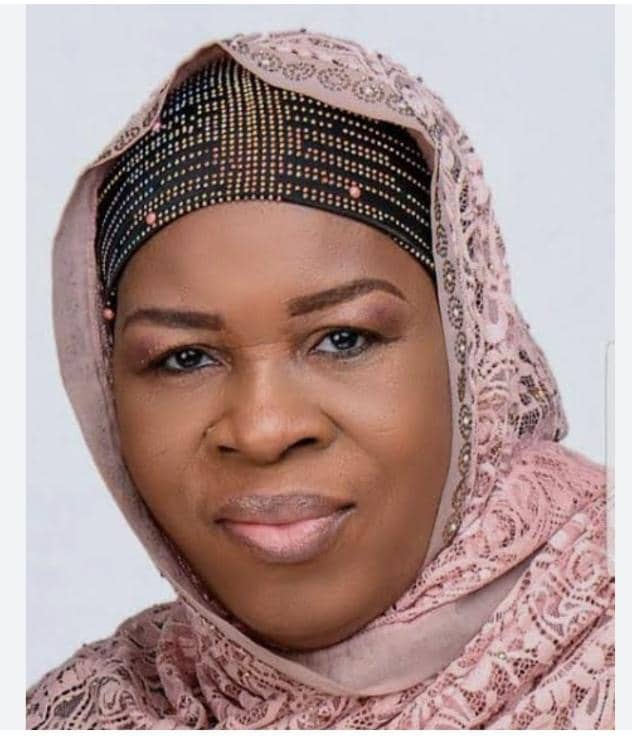ADA, ADC, APC: Without substance, what’s in a name?, by Zainab Suleiman Okino
Nigerian politicians appear obsessed with the alphabetical positioning of political parties’ names and their corresponding acronyms on ballot papers. This obsession has created a frenzy among the political elite in their scramble to incorporate an “A” into their party names. The phenomenon manifested prominently in the new opposition coalition’s decision to name their party the African Democratic Congress (ADC), following concerns about the potential hijacking of the earlier All Democratic Alliance (ADA) by ruling party infiltrators. These alleged moles have reportedly presented another Advance Democratic Alliance (ADA) for registration, creating potential confusion for INEC. Consequently, the opposition swiftly moved to create an alternative name that also begins with “A.”
However, what correlation exists between alphabetical positioning and what a party truly represents? What bearing does it have on the principles a party holds dear, the ideology it espouses, or the manifestos it pledges to uphold and implement? For the currently ruling APC, the name might have sounded melodious to supporters’ ears. Their manifesto appeared impressive on paper, and their campaigns were vibrant and colorful. Yet since assuming power, our collective lives have been on a downward trajectory.
Contemporary political discourse rarely addresses good governance. All parties have succeeded in diverting attention from the existing governance deficit toward the promise of another utopia in a second term that remains months away. The excitement surrounding the new player, ADC, has obscured our perception of their past. These are political veterans who have repackaged themselves for another confrontation aimed at wresting power and recovering lost opportunities.
READ ALSO: The making of a Tinubu republic, by Zainab Suleiman Okino
Historically, the competition over party names and acronyms was not as intense. The Northern People’s Congress (NPC) did not require a fancy, easily recognizable name and acronym to form a government at the center after independence, even when competing against its closest rival’s early alphabet and melodious acronym, AG (Action Group).
Although “N” represents the 14th letter of the alphabet, the NPN successfully surpassed the People’s Redemption Party (PRP), Greater Nigerian People’s Party (GNPP), and Unity Party of Nigeria (UPN), as well as the Nigeria Advance Party (NAP), to emerge victorious and govern from 1979 to 1983. The June 12, 1993 election that produced MKO Abiola featured the Social Democratic Party (SDP) contending with the National Republican Party (NRC), yet SDP triumphed despite its acronym appearing after NRC alphabetically. This raises questions about the current obsession with early alphabets. Which of these alphabets can provide sustenance for citizens if political actors fail to develop policy initiatives capable of transforming circumstances?
During the first sixteen years of this Republic, when PDP dominated, its initial letter “P” came after APP and later ANPP and AD, yet it secured four consecutive presidential elections in 1999, 2003, 2007, and 2011. Voters successfully located and supported the party even as more political parties emerged subsequently.
Olusegun Mimiko’s emergence as a governorship candidate and eventual governor under the relatively unknown and obscure Labour Party demonstrates the importance of popularity and public confidence in ability, even when LP lacked recognition. He later served as senator under the Zenith Labour Party. That same Labour Party faded into obscurity for over a decade despite its alphabetical positioning until Peter Obi’s popularity revitalized it. This begs the question: what significance does “A” or “L” truly hold?
The advent of APC, which can legitimately claim the “alphabet effect” as a contributing factor, altered this dynamic entirely. The then-new party, determined to outshine PDP, embodied true braggadocio with its vibrant colors, flamboyant presentations, festival-like carnivals, and campaign rallies, featuring progressive personalities including a former military head of state. Following the party’s overwhelming victory in the 2015 election, assumptions emerged that their position on the ballot might have contributed to their success. This sparked the current competition for political parties to begin their names with “A.”
READ ALSO: Is NOA’s changing narratives for real?, by Zainab Suleiman Okino
Some individuals who played crucial roles in APC’s formation have similarly converged to establish ADA and ADC. Therefore, the scramble for the letter “A” to precede APC on the ballot and gain advantage comes as no surprise. The time invested in devising names and acronyms beginning with “A” could be better utilized strategizing uplifting programmes for collective betterment and addressing grinding poverty. Instead, they prefer to contest over trivial and insignificant matters rather than compete to provide effective governance.
Beyond exploiting voter ignorance, what value does a name possess? What worth does a beautiful political party name hold without substantial offerings for the people, except for those with access to powerful figures? The media and civil society organizations bear responsibility here. We must educate the electorate to look beyond names and make informed choices. They should be capable of distinguishing between parties and, above all, must demand beneficial programmes that will transform their lives, as names cannot accomplish this feat.
LP’s impressive performance in the recent election further proves that viable candidacy, personality, candidate principles, and party programmes carry more weight in securing votes than the name a party bears.
READ ALSO: Atiku, Obi losing grip – time for political house cleaning, by Zainab Suleiman Okino
The desirability of a new party as a third force to challenge the ruling APC cannot be overstated. Those who control the main opposition PDP and maintain their grip on it may retain it indefinitely, potentially becoming the party’s undertakers. This fresh beginning with new parties is essential for democracy’s survival. We cannot afford a one-party state because Africans do not thrive under authoritarian rule and autocratic leadership. Multiple viable opposition parties with determination to cooperate will keep the ruling party vigilant and check their excesses.
Moving forward, APC will have no alternative but to improve and provide good governance. If this becomes our only gain, we will commend the opposition, regardless of electoral outcomes. President Bola Tinubu had barely settled into office when he began preparations for the next election. With other parties joining, electioneering campaigns for 2027 have commenced earnestly. However, if campaigning must occur, it should involve multiple competing parties rather than allowing a single party to determine everyone’s fate.
Zainab Suleiman Okino is the Chairperson of Blueprint Editorial Board, a syndicated columnist, and Fellow of the Nigerian Guild of Editors (FNGE). Zainab can be reached via: zainabokino@gmail.com
Follow the Neptune Prime channel on WhatsApp:
Do you have breaking news, interview request, opinion, suggestion, or want your event covered? Email us at neptuneprime2233@gmail.com





